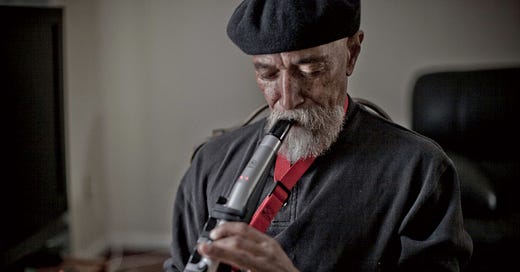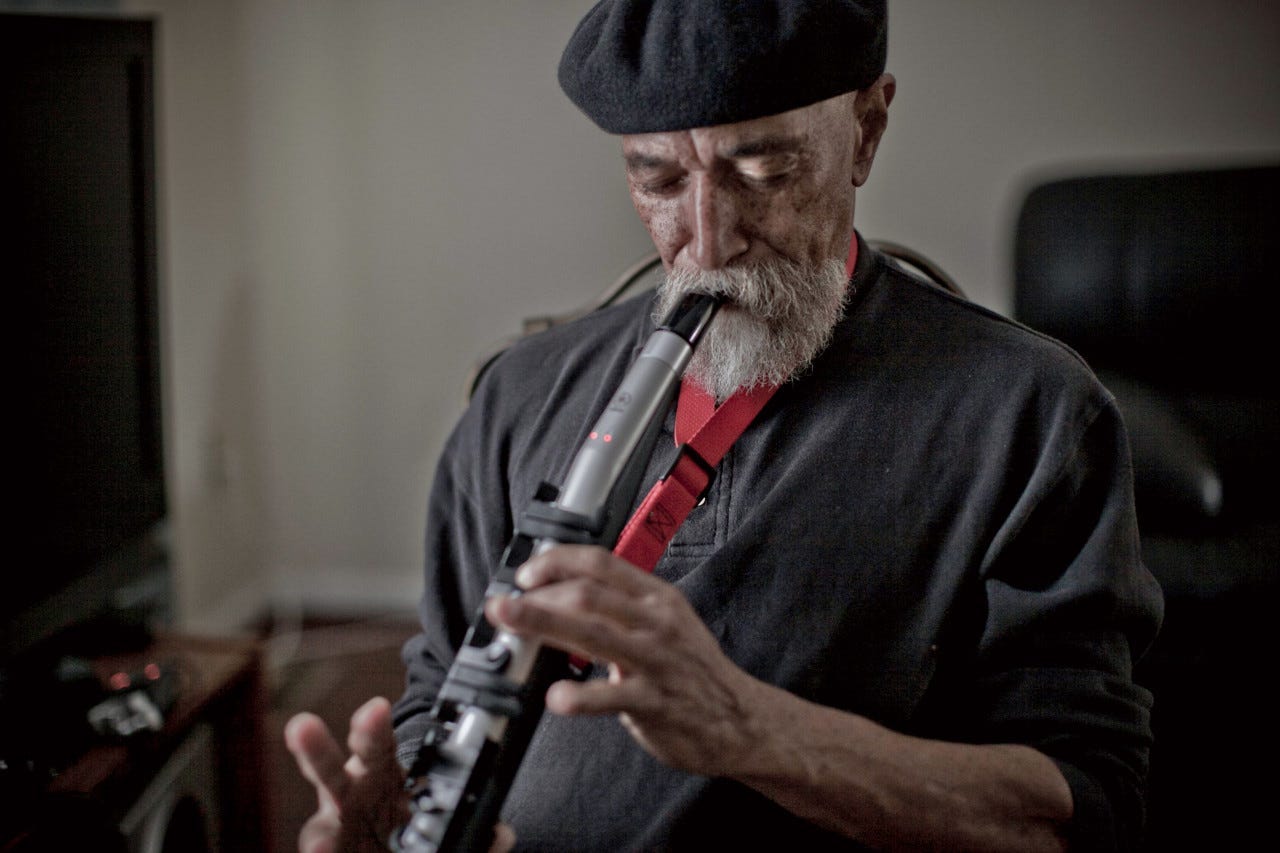One-Man Band
From mallet-kat to balaphone, an industrious Washingtonian makes a living by mastering instruments most of us can hardly pronounce.
Until arriving at a venue and getting to know the space, Saleem Wayne Waters has no idea what he’ll play.
He’ll lug his equipment—keyboard, electronic microphone and speakers—inside, set everything down and then start gauging the vibe. Until he’s physically paced around, though, the possibilities are endless.
“I always get there early,” says the sixty-one-year-old musician, who has lived and gigged around Washington, D.C. his entire adult life. “I feel the room and get a sense of the place. What I do is, I’ll have three different shows in my mind of how it could go, and, as a result of how I train my brain, I can adapt to all situations.”
Waters was a fixture in D.C.’s music scene during its heyday of the 1980s and ’90s, playing with countless bands. He can play so many instruments that he loses track of the exact number, but says it’s around two dozen. He transitioned from a series of successful live bands two decades ago to develop an innovative electronic solo ac…
Keep reading with a 7-day free trial
Subscribe to Narratively to keep reading this post and get 7 days of free access to the full post archives.





